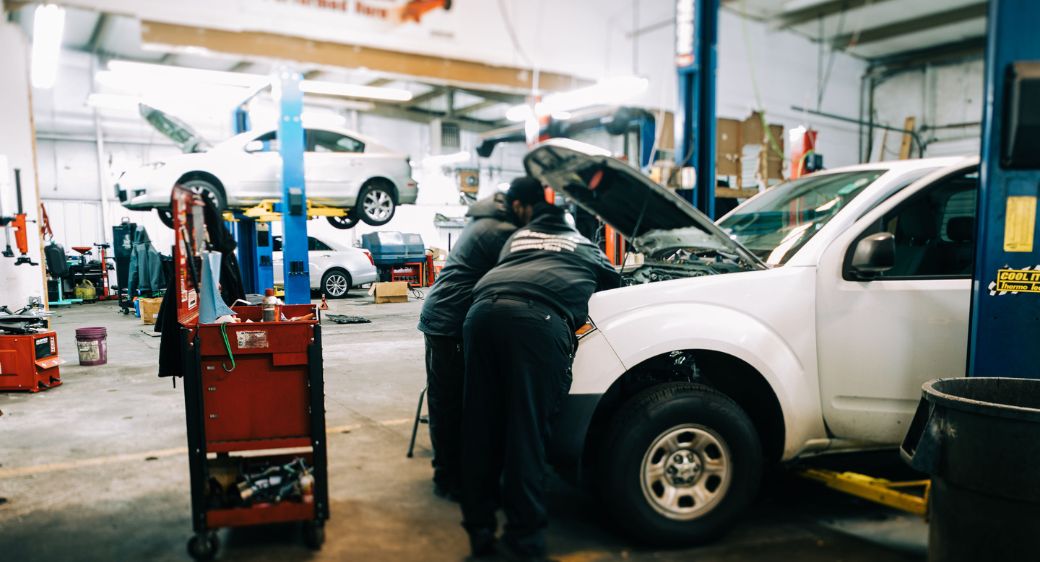How Scheduled Fleet Repairs Deliver Road Readiness

Sharing this:
Fleet vehicles, from delivery trucks to company cars, are the backbone of many industries. However, maintaining a fleet of vehicles can be a logistical challenge. Even one unexpected breakdown can impact operations, causing delays, added costs, and safety concerns. For fleet managers seeking to improve operations, the importance of scheduled repairs cannot be overstated.
Understanding how scheduled fleet repairs deliver road readiness helps companies stay proactive, minimizing downtime and ensuring their fleet operates efficiently and reliably. This article will explore the concept of scheduled fleet repairs, their impact on road readiness, and why this preventative approach is essential for keeping your vehicles in top-performing condition.
Understanding Scheduled Fleet Repairs
Scheduled fleet repairs are a preventative approach to vehicle maintenance. Unlike reactive repairs, which are only addressed after a problem arises, scheduled repairs involve routine inspections and maintenance at predetermined intervals. This process ensures worn-out components are replaced before they cause issues and potential risks are addressed promptly.
Fleet managers can work with expert technicians to develop a maintenance schedule tailored to the unique needs of their vehicles. Fleet usage, mileage, type, and known manufacturer recommendations are all incorporated into creating an effective schedule. Prioritizing this strategy involves building a habit of long-term care for the condition and safety of company vehicles.
The benefits of scheduled repairs are both immediate and long-term. Vehicles are far less likely to suffer sudden malfunctions and remain in optimal working order for their full service life. Fleet downtime is reduced considerably, which means smoother operations and improved business performance.
The Link Between Scheduled Fleet Repairs and Road Readiness
Road readiness is the ability of your fleet vehicles to function safely, efficiently, and reliably on the road. Operations can progress without disruption when vehicles are ready to handle business demands without interruptions. Scheduled repairs ensure road readiness by preventing breakdowns and maintaining vehicles' overall health.
A fleet with unexpected mechanical failures may face financial and operational challenges. Repairs conducted during breakdown scenarios are often more expensive due to towing needs, emergency parts orders, and longer repair times. Scheduled repairs resolve this by anticipating problems and addressing them during planned maintenance sessions, avoiding emergency costs and inconveniences.
Scheduled maintenance also enhances driver safety. By keeping crucial systems such as brakes, tires, and engine components in optimal condition, fleet drivers are far less likely to experience hazardous situations on the road. This reduces safety risks to employees and the public, providing peace of mind for fleet operators.
Fleet owners who consistently follow scheduled repairs will notice increased confidence in their vehicles' reliability. There is less second-guessing whether vehicles can complete their tasks without disruption. This solidifies customer trust in businesses, ensuring services are dependable and delivered as promised.

How Scheduled Repairs Reduce Downtime
Downtime is one of the biggest threats to fleet efficiency. For each hour a vehicle is out of service, companies can lose revenue, miss deadlines, and affect customer satisfaction. Fleet downtime is no small expense, often impacting multiple processes and operations within the company.
Scheduled fleet repairs minimize operational downtime by focusing on proactivity. By allocating time in advance for vehicle maintenance, businesses avoid the unpredictable and often prolonged delays caused by unexpected breakdowns.
Consider how scheduled repairs ensure consistent operation for vehicles heavily used in delivery or transportation services. A van inspected at regular maintenance intervals is far less likely to break down during a delivery route, saving drivers the stress of waiting for assistance and eliminating risks to cargo.
Scheduled maintenance also enhances the planning capabilities of fleet managers. With advanced knowledge of when vehicles will be unavailable for service, schedules can be adjusted with minimal disruption. Downtime becomes predictable and manageable when repairs are conducted with foresight.
Improving Vehicle Longevity
Every vehicle has a service life, but its longevity largely depends on how well it is maintained. The value of a fleet lies in its dependability over time, and scheduled fleet repairs are integral to preserving that value.
Preventive maintenance slows the wear and tear that occurs with extensive vehicle use. Regular oil changes, brake inspections, and tire rotations protect essential systems from unnecessary strain. Additionally, identifying and addressing minor issues early prevents them from becoming costly, irreversible problems that can shorten a vehicle's lifespan.
Scheduled repairs conducted by skilled technicians contribute to preserving engine health, optimizing fuel efficiency, and ensuring proper alignment and steering functions. Consistent care promotes sustainable and cost-effective operations for fleet vehicles that log long hours and high mileage. Businesses can allocate resources to growth rather than constantly replacing vehicles because of insufficient maintenance.
Fleet owners who adopt a scheduled repair strategy can also improve resale value. Well-maintained vehicles with a documented service history typically fetch better prices in secondary markets. Scheduled repairs demonstrate that vehicles were cared for responsibly throughout their use.

Building Trust Through Reliability
Trust is a critical component of any business, and the reliability of fleet vehicles can significantly impact a company's reputation. Whether delivering goods to customers or transporting employees to various locations, reliable vehicles strengthen professional relationships and instill confidence.
Businesses that cannot consistently meet customer demand risk losing repeat opportunities and damaging their brand image. Customers highly value companies that demonstrate dependability, and vehicle performance is key to fulfilling commitments.
Employees also benefit from the improved reliability of fleet vehicles through scheduled maintenance. When drivers operate well-maintained vehicles, they can focus on completing tasks efficiently rather than addressing mechanical problems. This improves productivity, enhances morale, and minimizes complaints or issues caused by vehicle failures.
Externally, scheduled repairs portray a company as one that prioritizes safety and efficiency. A well-cared-for fleet signals professionalism, whether vehicles operate on bustling city streets or rural roadways. This enhances public perception, further bolstering trust in the company's operations.
Addressing Fleet Maintenance Challenges
While the benefits of scheduled fleet repairs are undeniable, challenges in adoption may arise. These challenges often include budget constraints, time management, and resource allocation. Fleet owners and managers may wonder if the upfront cost of scheduled maintenance justifies its benefits or how to design a schedule that meets their needs.
Partnering with a trusted car repair shop specializing in fleet maintenance addresses these concerns. With expert guidance, fleet managers can evaluate their operation's requirements and receive tailored maintenance plans that align with budgets and unique vehicle demands. Skilled technicians also maximize the efficiency of each maintenance session, minimizing the time vehicles are out of service while ensuring repairs address every potential issue.
When initiated correctly, scheduled maintenance programs are cost-saving investments rather than financial burdens. The reduction in emergency repairs and improved vehicle performance outweighs the initial expense.
Conclusion
The benefits of scheduled fleet repairs extend beyond improving vehicle performance. They enhance safety, optimize operations, and extend vehicle lifespan. This proactive approach eliminates the uncertainty of reactive repairs by ensuring fleet vehicles remain dependable over time.
For companies that rely on their fleet's reliability and efficiency, scheduling repairs is a sound operational strategy and a critical business investment. The cost savings, productivity gains, and improved trust significantly outweigh the time and effort required to implement routine maintenance practices.
For businesses searching for a car repair shop capable of addressing fleet repair needs, contact Blue Ridge Automotive. Choose the professionals who understand how scheduled fleet repairs deliver road readiness and who prioritize prompt quality services.



